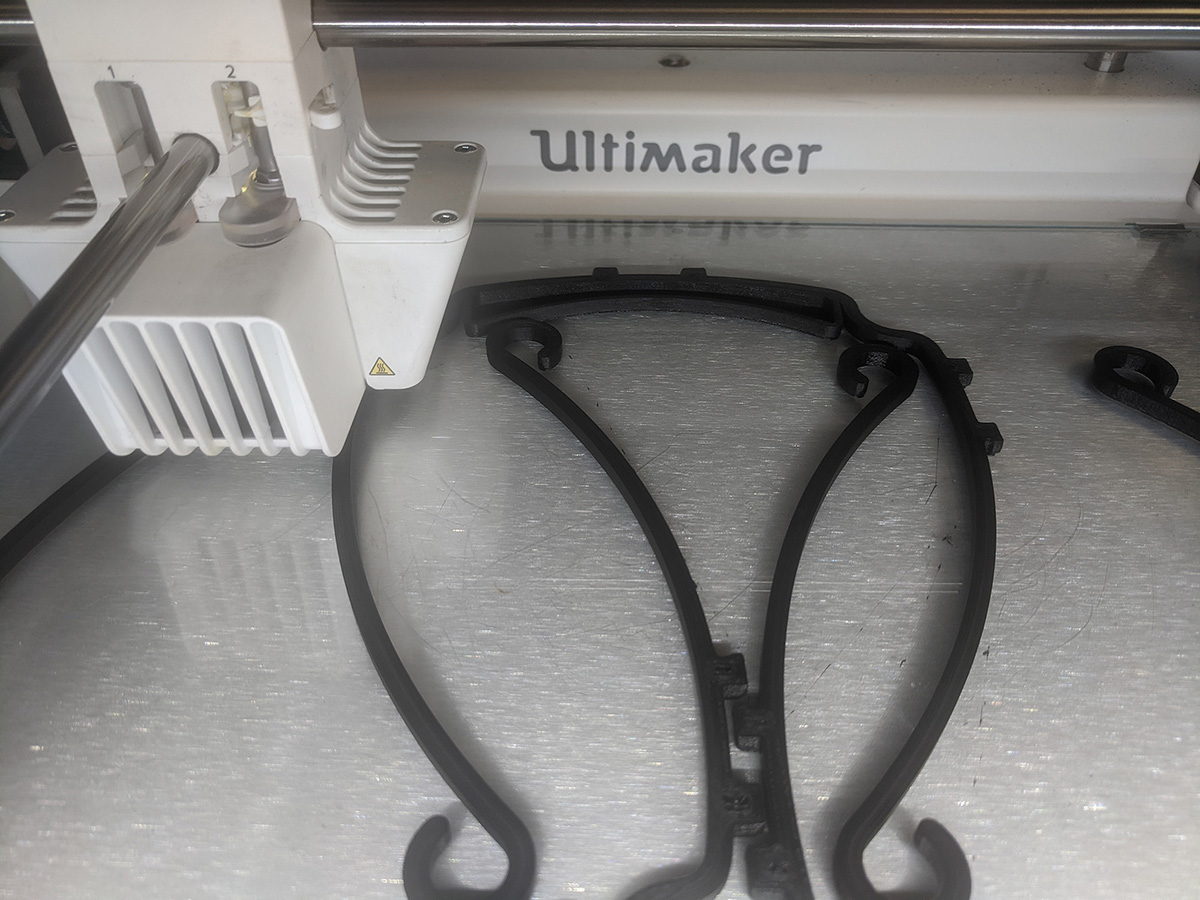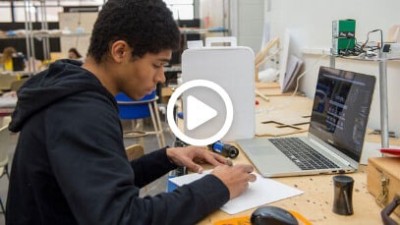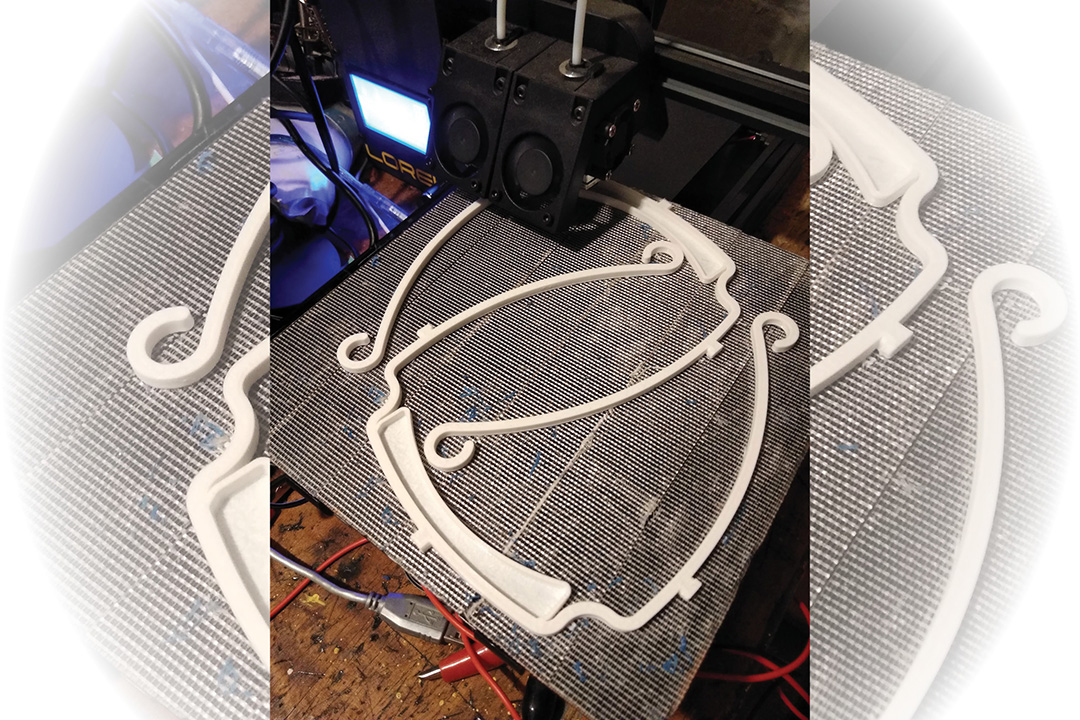Faculty, staff using 3D printing expertise to help battle with coronavirus
Mark Reisch's home 3D printer in action.
Years ago, Mark Reisch received a box of transparency sheets from his father-in-law that he never thought would be needed.
But amidst the novel coronavirus pandemic, he is employing it in the best possible way, in a time of widespread need. The assistant professor in RIT’s School of Film and Animation is combining the transparent, flexible material with his 3D printing expertise to produce protective face shields for healthcare providers around the country.
Using his home 3D printer, Reisch is making plastic headbands with pegs that affix to punched holes in transparency sheets cut down to cover a face. Reisch is collaborating with Joanna Stephens, M.D., of Highland Family Medicine, to ship the products to different parts of the country, including Baltimore, Philadelphia and Seattle. He said Stephens has connections in those cities who work in healthcare settings that desperately need the equipment.
“I've always been someone who likes to help where I see a need,” Reisch said. “I have worked in healthcare and know these are the people we desperately need to avoid becoming sick. Be safe — we will get through this.”
Reisch printed his first headset on March 27. Since, he’s fashioned more than 100 additional shields for donation. A plastic filament donation from Stan Rickel, associate professor in the School of Design, will allow Reisch to make hundreds more. For the design, he is following the North American version of the 3DVerkstan protective visor.
He has also adjusted some of the designs for donation to Face Shields Roc, a local volunteer effort creating and distributing shields to medical facilities.
Dan Gabber ’17 (Industrial Design), ’19 MFA (Ceramics), the College of Art and Design’s digital fabrication specialist and Fab Lab manager, is also doing his part in the battle against coronavirus. He is 3D printing shields and other equipment in support of various initiatives.
Gabber partnered with James DeMarco, facilities coordinator of the National Technical Institute for the Deaf’s Department of Visual Communications Studies, to 3D print shields for Face Shields Roc. Additionally, Gabber is assisting Professor Denis Cormier, director of RIT’s AMPrint Center, in producing nebulizer components for Rochester Regional Health.

Gabber also created his own face shield design, and he is sending samples of the protective gear to local clinics and other organizations in need.
Industrial Design student and Fab Lab employee Tiree Walker, Gabber said, has been instrumental in helping him execute the difference-making projects at a time of great need. They are printing 150 face shields per day, Gabber said.
“From laser cutting to 3D printing, we are using every technology we can to help make medical devices to support the local need,” Gabber said.








